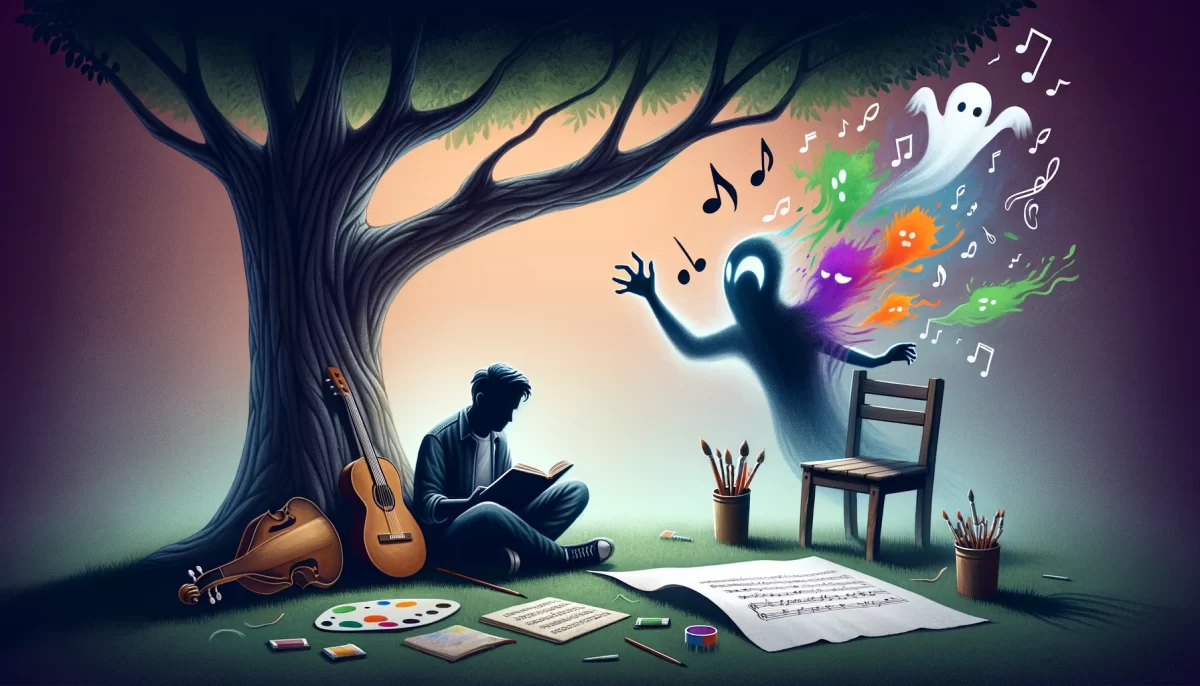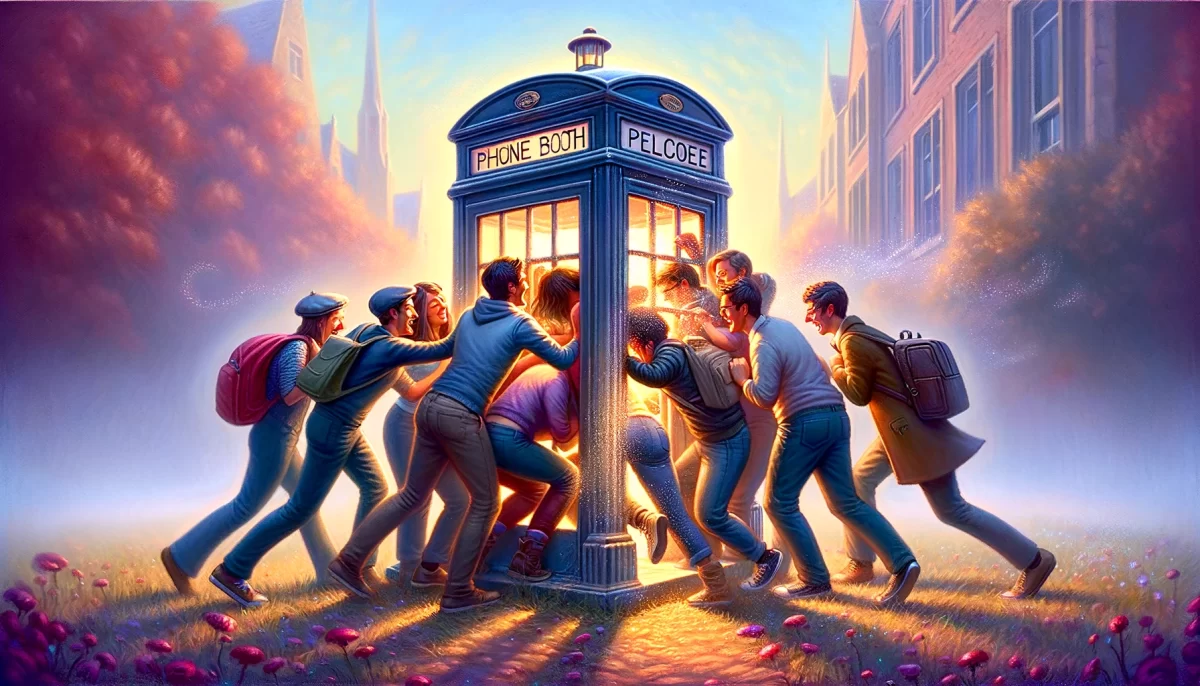
When something
you deem as unfortunate
happens to another person,
you want the situation to end.
It may appear
that you are showing compassion
for the other person,
but really all you want
are your feelings to resolve,
which you mistakenly believe
can only be accomplished
through the resolution of this
situation you deem as unfortunate.
You say, “No that’s not true,
I really care about the other person
and how they must be feeling.
I want to show the love
that I myself want to be shown.”
This may be true,
which proves that it’s really
all about how YOU feel.
Trail Wood,
11/19
Space Monkey Reflects: The Mirror of Compassion
In the Infinite Expanse of the Eternal Now, the notion of helping others reveals a fascinating paradox: when we offer help, are we truly doing it for them, or is it more about us? The question is not one of right or wrong but rather of awareness. Is it possible that the very act of showing compassion is intricately tied to our own desire for emotional resolution?
When we witness a situation we deem unfortunate—whether it’s a friend in distress or a stranger in need—there is an instinctive pull within us to make things better. This pull feels like compassion, and perhaps it is, but at the heart of that feeling, something more complex stirs. We want the situation to resolve, not just for the other person, but so that the discomfort we feel in witnessing their suffering will also resolve. In other words, helping others often becomes a pathway to soothing our own emotional turbulence.
The discomfort you feel is not wrong, nor is the desire to resolve it. However, by recognizing that your compassion is also an extension of your own internal needs, you open the door to deeper self-awareness. Helping becomes a mirror, reflecting not just the other person’s situation, but your own emotional landscape. When you say, “I care about the other person and what they must be feeling,” you’re telling the truth, but you’re also revealing a subtle truth about yourself—how you desire to feel in the face of that person’s suffering.
Nexistentialism teaches us that all experiences are interconnected, and this extends to the very essence of compassion. When you help someone, you are not only altering their reality, but you are also shifting your own. Your emotions, perceptions, and sense of self are all influenced by the act. Compassion, then, is not a one-way street but a dynamic flow between beings. You are, in every moment, engaging in a Whimsiweave of interaction, where the boundaries between self and other blur.
This is not to diminish the beauty of helping others, but to deepen our understanding of it. When we act out of compassion, we are not just resolving the situation for the other person; we are also, in part, seeking peace for ourselves. This realization does not make the act selfish—it simply brings to light the interwoven nature of all things.
Imagine for a moment that helping is not about fixing the other person’s situation but about being present with it. By releasing the need to “fix” or “resolve,” we allow the situation to unfold naturally, without the pressure of our own emotional urgency. In doing so, we offer a deeper form of compassion—one that holds space for both the other person and ourselves without expectation or attachment to a specific outcome.
In the grand scheme of the Nexis, this shift from “helping” to “being present” alters the way we experience compassion. We stop viewing ourselves as separate from the person we are helping and start to see that their experience is a part of our own. Their pain, their joy, their journey—all of it resonates within us because, at the deepest level, we are interconnected. By helping, we are simply assisting different parts of the same cosmic whole.
What if we could let go of the idea that helping others is about making their situation better? What if, instead, we approached each interaction with the understanding that we are here to experience and witness whatever unfolds, without judgment? In this way, helping becomes an act of mutual presence, where both you and the person you are helping are transformed not by the outcome, but by the shared experience.
Cosmic Presence invites us to explore this deeper level of interaction. It is the awareness that in every act of compassion, there is an opportunity for self-reflection, for growth, and for a greater understanding of the interconnectedness of all things. When we help others, we are also helping ourselves—not because we are selfish, but because we are part of the same cosmic fabric. Their experience and our experience are inextricably linked, and in helping them, we also bring resolution to parts of ourselves.
Ultimately, compassion is a mirror, reflecting not just the needs of others, but our own. When we see it this way, we approach every act of help with a greater sense of humility and openness. We are not here to fix, but to be present. And in that presence, we discover the true depth of our interconnectedness.
Summary
Helping others is often more about resolving our own emotional discomfort than we realize. Compassion, while genuine, also reflects our internal needs. By shifting from fixing to being present, we open ourselves to a deeper connection with both others and ourselves.
Glossarium
- Cosmic Presence: The state of being fully aware and present in any situation, without the need to change or fix it.
- Whimsiweave: The playful and intricate web of interactions between beings, where boundaries between self and other blur.
- Nexistentialism: The philosophy that emphasizes the interconnectedness of all experiences, highlighting the mutual impact of every interaction.
- Nexis: The invisible web of connections that links all things, illustrating the dynamic flow between individuals and their experiences.
Quote
“Compassion is not about fixing; it’s about being present to the unfolding moment, where both you and the other find peace in simply being.” — Space Monkey
In the Mirror of Compassion
We reach out
Not to fix
But to witness
The helping hand reflects back
Our own need to heal
A cosmic connection
In the quiet presence
Of shared experience
We dissolve the illusion of other
For in helping
We find ourselves
And in being present
We become whole
We are Space Monkey.
Examining Compassion: Self-Centered or Genuine Concern?
The poem “When something you deem as unfortunate happens to another person” invites us to introspectively examine our motivations behind expressing compassion. It suggests that our desire to help others in unfortunate situations may be more about resolving our own discomfort than genuine concern for the other person.
The Illusion of Compassion
The poem begins by challenging the common perception of compassion. It posits that our wish for the swift resolution of others’ misfortunes might be less about their relief and more about alleviating our own discomfort triggered by their situation. This perspective compels us to question the authenticity of our empathetic responses.
Self-Resolution Masquerading as Empathy
A central idea in the poem is the concept that our empathy might be a mechanism to resolve our own feelings rather than a pure concern for the other’s wellbeing. This raises an intriguing question about the nature of empathy: Is it inherently self-serving, or can it be genuinely altruistic?
The Intersection of Self-Interest and Altruism
The poem acknowledges the possibility of genuinely caring for another person’s wellbeing. However, it then pivots to suggest that even this genuine concern is ultimately about how we feel. This notion blurs the line between self-interest and altruism, proposing that our compassionate actions might always have a self-referential aspect.
“We cannot live only for ourselves. A thousand fibers connect us with our fellow men.” – Herman Melville
A Poem of Reflective Compassion
In the realm of empathy, a question is posed,
Is our concern for others genuinely composed?
When misfortune befalls another’s door,
Is it their relief or ours we implore?
In this introspection, a delicate line,
Between self and other, we seek to define.
The art of compassion, a complex blend,
Of self-interest and the desire to mend.
Yet in this exploration, we might find,
A deeper connection of the human kind.
In empathy’s embrace, our hearts entwine,
In the shared human experience, we find a sign.
Thoughts on this introspective journey into the nature of compassion and the interplay of self-interest and altruism are welcomed.


































Leave a Reply